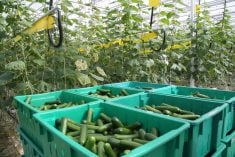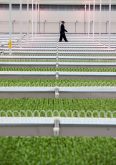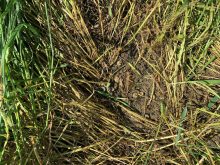Biological products have been around for decades, but interest in these plant-based cropping solutions has taken off with increased availability and more growers seeking new crop management options.
Why it matters: Biologicals can help growers better manage crops, but their use requires planning and know-how.
“We’re still working on completely understanding how these products stimulate plants, feed microbes in the soil and use carbon sources to promote plant health,” says Steve McQueen, agronomy manager with Alpine.
Read Also

The forced Japanese-Canadian farmers of the Second World War
Manitoba’s sugar beet farms drew on displaced Japanese-Canadians from B.C. during the Second World War
“But we’ve come a long way, and we’re realizing just how much potential these plant-based solutions can offer.”
Dave de Vries, president of Agriculture Solutions Inc., believes the opportunities are endless but many people do not fully understand them.
There’s plenty of information available, but before a grower invests in biologicals, there are three questions to ask.
What do I want to achieve?
Biologicals can be used for a broad range of purposes, from enhancing plant growth and productivity to overcoming stressors that could limit crop yield and production.
“The key is to understand what you are trying to achieve throughout the growing season,” advises McQueen.
He says that could range from addressing a concern, like improving germination and giving plants a boost in the early stages, to meeting yield goals that have been otherwise unattainable.
Enhancing nutrient efficiency is a common objective for some of McQueen’s customers, especially those looking to increase yield and bottom line. He says biological seed treatments that can be applied in-furrow can enhance plant growth and development.
Biological seed treatments can feed microscopic organisms that stimulate early and improved root growth. Increasing a plant’s root mass and root tips can increase metabolism and nutrient uptake.
“Increasing a plant’s ability to feed itself and building a stronger root to soil relationship benefits the crop overall and throughout the growing season,” says McQueen.
In situations where growers want to manage or reduce stressors on plants, biological products can be added in a tank mix to work as natural surfactants and support herbicides or fungicides.
A southwestern Ontario grower that McQueen works with has noted results from adding fulvic acid to the tank anytime he sprays to help plants absorb products.
De Vries reminds growers that because biologicals are made without synthetics and are teeming with live biology, they will enhance the function of living organisms within plants and soil. He believes any and all crop stress could benefit from a well-designed biological product.
“Pick one thing you want to change and take a systematic approach to implementing a new biological product on your farm,” says McQueen.
How will I measure performance?
Identifying the goal will help answer the next question: how to measure product performance.
McQueen advises growers to start by determining the parameters, including measurement benchmarks, and make sure checks are in place throughout the growing season.
“Simplicity is key. Start by asking questions about how and why the product works, and what responses or changes you should expect to see in your fields. Use this information to help evaluate your investment.”
When it comes to measuring performance, growers must be ready to assess the outcome in a variety of ways. These could include final yield, crop stand, plants’ ability to recover from a stressor or enhanced soil microbes and root mass.
Who is supporting me?
Today’s market offers an array of biological products, including seed treatments and foliar applications.
Many can be used to enhance crop development at various points: germination, emergence, reproduction and plant fill. McQueen advises growers to identify when they want to help plants or manage stressors and then match the right product, timing and type of application.
“We want to help plants access the right nutrition and nutrients at the right time and never put them in a deficiency. That’s why the best approach to adding biologicals is to work them into a crop system plan throughout the growing season.”
McQueen also believes a biological product shouldn’t be just another cost or addition.
He advises growers to ask how a product will allow adjustments to a crop plan. That’s one reason its important to work with a trusted adviser — a retailer, agronomist or crop protection specialist — when adding biologicals.
“This is a chance for growers to personalize what they are trying to fix or achieve on their farms, and for many it will be a new experience,” says McQueen.














